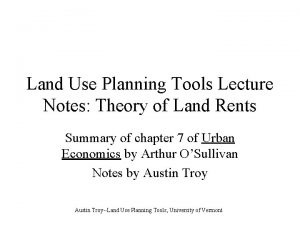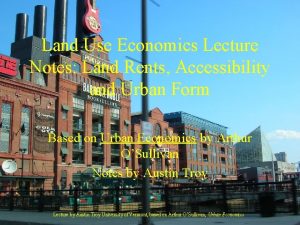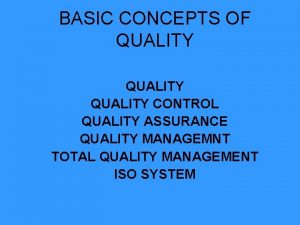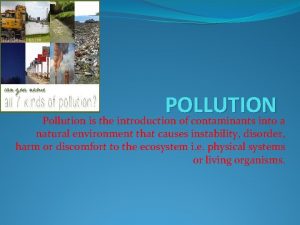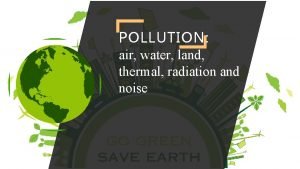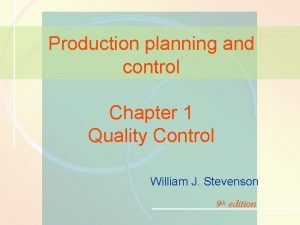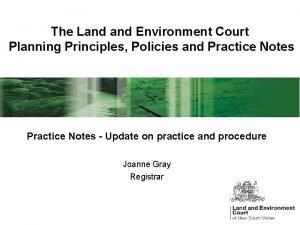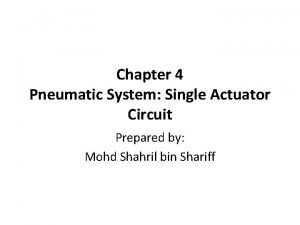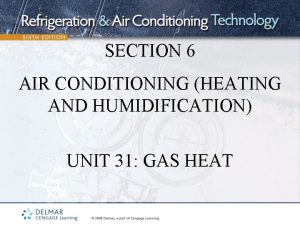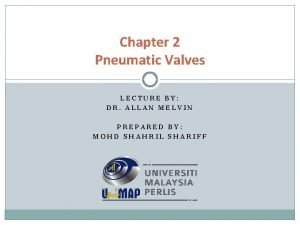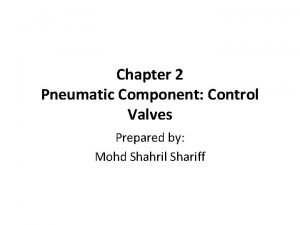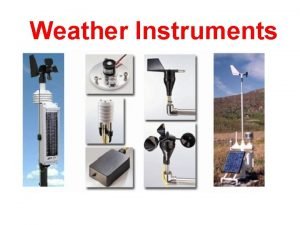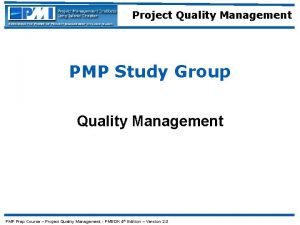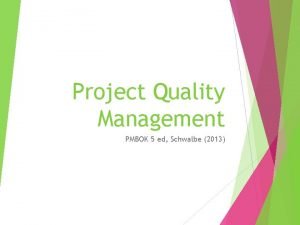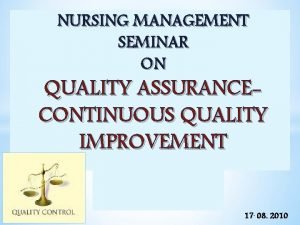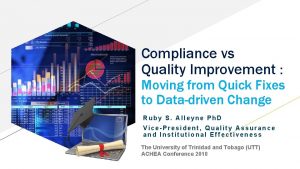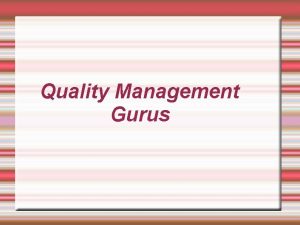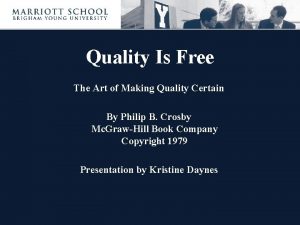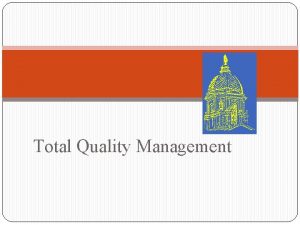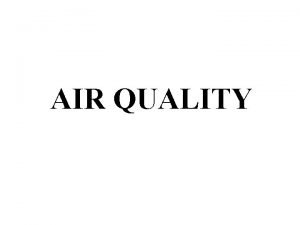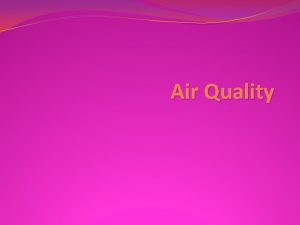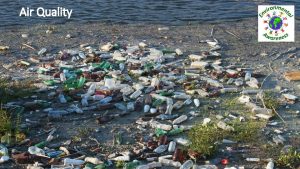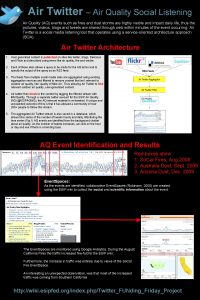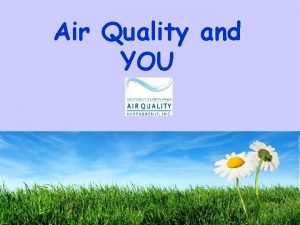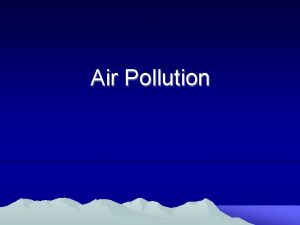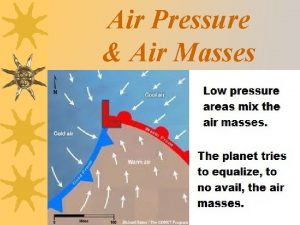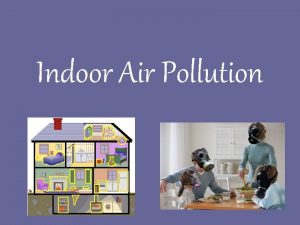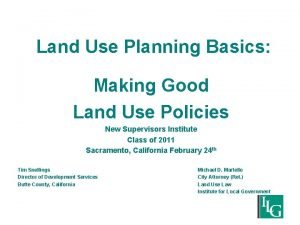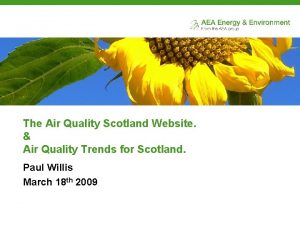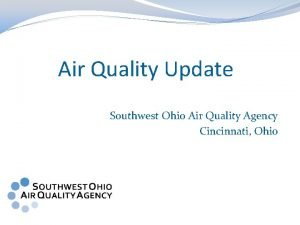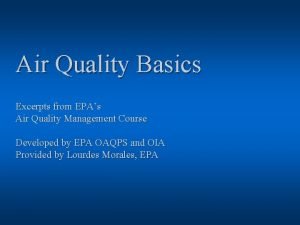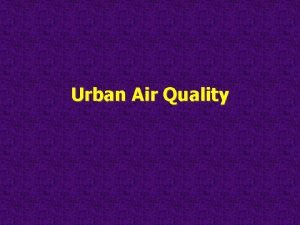Air Quality and Land Use Planning Land Use






















- Slides: 22

Air Quality and Land Use Planning Land Use Consultants 11 th March 2008 Susanne Underwood

Overview n Study aims and objectives n Method and Findings n Conclusions n Recommendations

Study aims and objectives n Aim n n to undertake research to inform SEPA planning staff and local air quality specialists about how best to achieve SEPA’s outcomes for air quality through the planning system Objectives n n to research the interface between land use planning and the protection and improvement of air quality to assess the impact and effectiveness of planning decisions and policy on air quality

Air Quality and Planning n Scottish Planning Policy (SPP) 1 The Planning System (2002) n n sets out role of integrated and sustainable transport to help improve air quality, address climate change and protect environmental resources from the damage caused by pollution Scottish Planning Policy (SPP) 17 Planning for Transport (2005) n promotes an integrated approach to land use planning, economic development, transport and the environment, in order to meet Government commitments and targets on greenhouse gases and local air quality

Air Quality and Planning n Planning Advice Note (PAN) 51 Planning, Environmental Protection and Regulation (Revised 2006) n n provides detailed advice on the role of the planning system in relation to air quality issues sets out SEPA’s role as a statutory consultee on Local Air Quality Management

Method and Approach Main stages: 1. Review of all structure and local plans in Scotland adopted since 2001 for references to air quality 2. Review a sample of English structure and local plans adopted since 2001 in local authorities with AQMA for references to air quality 3. Review of Supplementary Planning Guidance on air quality

Method and Approach 4. Review of planning appeals in Scotland, England Wales where air quality was an issue 5. Review of a sample of development control decisions 6. Consultation with planning officers and environmental health officers, Scottish Executive, and the Environment Agency

Development Plan review Findings n n n Approaches to air quality policy vary Structure plans are not typically providing clear framework for local plans Even where the Structure Plan provided a framework generally poor coverage of air quality issues in Scottish local plans Some plans address air quality in relation to a wide range of developments, other plans are topic specific More recent plans provide more comprehensive coverage of air quality in plan policies Air quality policies often lack qualification

Supplementary Planning Guidance n Role and purpose n n n Provides guidance for applicants and planners Provides additional detail to plan policies Raises the profile of air quality issues Identifies circumstances when an AQA likely to be required Guidance on conditions and how to use them Can provide guidance on mitigation and cumulative impacts

Review of planning appeals and development management n n Reviewed appeals where the environmental impact on air quality was a significant issue Reviewed planning applications for references to air quality Difficult to identify where air quality was an issue in planning applications due to inconsistent use of terms relating to air quality and limited search options Limited examples of air quality related conditions or air quality as a determining issue

Consultation n Aims of consultation: n n To identify the mechanisms for triggering consideration of air quality issues; To identify the information or advice each local authority uses in relation to air quality issues; To identify examples of planning applications where air quality issues should have been a consideration, but weren’t; To identify what changes would help ensure that air quality was addressed more comprehensively.

Conclusions and Recommendations

Conclusions n n n Relatively low profile of air quality in planning Inconsistent approach to air quality through development plans Inconsistent use of terminology relating to air quality in development management SPG beneficial in informing air quality in planning, but no examples of SPG in Scotland Joined up approach between local authority environmental health officers and planners brings significant benefits for addressing and understanding air quality issues

Recommendations n Context n n n SEPA is a consultee on development plans and a statutory consultee for SEA Future changes to the planning system – strategic development plans and local development plans Under the new planning act, pre-application discussions will become mandatory for some developments – this presents future opportunities for SEPA involvement

Recommendations n Consultation responses to development plans n Evaluate policy coverage of air quality issues and make recommendations on changes n n n How significant are air quality issues within this local authority? Is there a stand alone air quality policy? Is air quality covered in other environmental protection policies? Are air quality issues addressed in relation to specific development types? Does the policy seek to improve air quality?

Recommendations n Air quality policy n n n Statement supporting improvement of local air quality Consideration of air quality standards in selecting locations for new development Consideration of air quality impacts when assessing development applications including departures from the development plan Reducing the need to travel Promoting public transport and an integrated transport system Key links to be made with policies on sustainable development, quality of life and environmental justice

Recommendations n Supplementary Planning Guidance Identified as beneficial for local authorities in providing clarity on when to consider air quality issues n SEPA could produce guidance on scope and content of SPG on air quality to encourage more local authorities to develop this n

Recommendations n Improved guidance on air quality and planning n n n Air quality information not always submitted as part of a planning application Decision may be made with air quality information outstanding Requirement for guidance on air quality related conditions for planning n Undertake a workshop event with SEPA staff, planners and environmental health officers to identify ‘model’ conditions to address air quality considerations in planning applications

Recommendations n n Requirement for guidance on addressing cross boundary impacts between local authorities Further research into need and scope for air quality modelling at a local authority scale and to assess cumulative impacts of developments

Recommendations n Promote and support cross departmental working n Within local authorities n n Workshop events At a national level n Promoting integration of air quality issues between government departments

Recommendations n Sharing good practice experience Within Scotland n Within UK n n Raise the profile of local authorities in addressing air quality issues when responding to development management consultations

 Pt tanah air sentosa
Pt tanah air sentosa Land use planning '' lecture notes
Land use planning '' lecture notes Land economics lecture notes
Land economics lecture notes Land use planning lecture notes
Land use planning lecture notes Define land use planning
Define land use planning Perform quality assurance
Perform quality assurance Quality control concepts
Quality control concepts 2 causes of land pollution
2 causes of land pollution Soil pollution images diagram
Soil pollution images diagram Production planning and quality control
Production planning and quality control Land and environment court planning principles
Land and environment court planning principles Indirect control of single acting cylinder
Indirect control of single acting cylinder Is methane lighter than air
Is methane lighter than air Pneumatic time delay valve symbol
Pneumatic time delay valve symbol Gosco s-class 3-way diverter valves
Gosco s-class 3-way diverter valves An instrument used to measure temperature
An instrument used to measure temperature Pmp quality vs grade
Pmp quality vs grade Pmbok quality assurance vs quality control
Pmbok quality assurance vs quality control Quality assurance model in nursing
Quality assurance model in nursing Quality improvement vs quality assurance
Quality improvement vs quality assurance Management gurus and their contributions
Management gurus and their contributions Quality is free: the art of making quality certain
Quality is free: the art of making quality certain Old quality vs new quality
Old quality vs new quality

